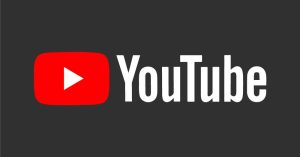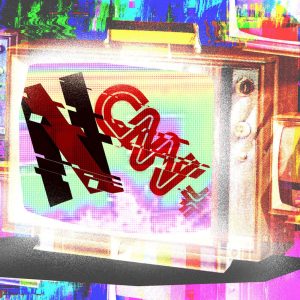In the vast landscape of the internet, few platforms have left as profound a mark as YouTube. Since its inception in 2005, YouTube has grown from a simple video-sharing website to a global phenomenon that has revolutionized entertainment, education, and communication. With its vast array of content, diverse creators, and unprecedented influence on modern culture, YouTube has reshaped the way we consume media and interact with the world.
The Birth of YouTube: A New Era of Online Video
YouTube was founded in February 2005 by three former PayPal employees: Chad Hurley, Steve Chen, and Jawed Karim. The platform was conceived as a way to share short video clips easily over the internet. Its first video, titled “Me at the zoo,” was uploaded by Karim on April 23, 2005, and it marked the beginning of a new era of online video content.
The early days of YouTube were characterized by user-generated content, often filmed with low-quality cameras. The platform quickly gained popularity due to its accessibility and the ability for anyone to upload videos for free. The concept of “viral videos” was born on YouTube, with videos like “Charlie Bit My Finger” and “David After Dentist” becoming internet sensations and demonstrating the power of user-generated content to capture global attention.
YouTube’s Impact on Entertainment and Media
As YouTube’s popularity grew, it began to have a significant impact on traditional entertainment and media industries. The rise of YouTube creators and influencers challenged the dominance of traditional celebrities, enabling individuals from all walks of life to amass large followings by sharing their talents, opinions, and experiences. This marked a shift in the way audiences engaged with content, as they started to seek authenticity and relatability in their online entertainment.
Additionally, YouTube allowed for the democratization of creativity. Independent musicians, filmmakers, comedians, and educators found a platform to showcase their work without the need for big production budgets or corporate backing. This led to the discovery of numerous talents who might have otherwise gone unnoticed by the mainstream media.
Educational and Informative Content
Beyond entertainment, YouTube emerged as a hub for educational and informative content. Individuals and organizations alike began creating tutorial videos, documentaries, and explainer animations, transforming YouTube into a valuable resource for learning. The accessibility of these videos made it possible for people to acquire new skills, gain knowledge on a wide range of topics, and even pursue alternative forms of education.
Prominent educational channels like CrashCourse, Vsauce, and Khan Academy gained millions of subscribers by providing engaging and insightful content across subjects like science, history, mathematics, and more. YouTube effectively blurred the lines between traditional classroom learning and informal education, making learning a dynamic and self-directed experience.
Challenges and Controversies
Despite its many positive aspects, YouTube has faced its share of challenges and controversies. One major concern has been the platform’s struggle to regulate and moderate content effectively. Issues such as hate speech, misinformation, and inappropriate content have sparked debates about the responsibility of both YouTube and its creators to ensure a safe and ethical online environment.
The platform’s algorithms, designed to maximize engagement and watch time, have also drawn criticism for potentially promoting extremist content or contributing to filter bubbles that reinforce users’ existing beliefs. YouTube’s efforts to balance algorithmic recommendations with responsible content curation remain ongoing.
YouTube as a Cultural Influence
Over the years, YouTube has become a reflection of global culture, capturing and amplifying trends, memes, and social movements. Iconic challenges, dance trends, and catchphrases have originated on the platform and spread to broader culture. YouTube played a pivotal role in catalyzing social and political movements, serving as a platform for activists, protesters, and advocates to share their messages and connect with like-minded individuals around the world.
Monetization and the Creator Economy
The advent of the creator economy was significantly fueled by YouTube’s monetization options. Creators who could amass a substantial audience were able to generate income through ad revenue, sponsorships, and merchandise sales. This led to the rise of professional YouTubers, many of whom turned their channels into full-time careers.
However, the monetization landscape has evolved, and YouTube creators now diversify their income streams through platforms like Patreon, Twitch, and partnerships with brands. This has created a new avenue for individuals to pursue creative passions and entrepreneurship outside of traditional employment models.
The Future of YouTube
As YouTube continues to evolve, its impact on the digital landscape is likely to persist. The platform’s influence on entertainment, education, and culture is not just limited to the past; it continues to shape the present and future. As technology advances, YouTube is likely to adapt with new features and possibilities, potentially incorporating virtual reality, augmented reality, and interactive content.
However, YouTube also faces ongoing challenges related to content moderation, privacy concerns, and maintaining a balance between profit-driven algorithms and responsible curation. The platform’s role in society will likely involve navigating these challenges while providing a space for creativity, connection, and expression.
In conclusion, YouTube’s journey from a small video-sharing platform to a global phenomenon has been nothing short of extraordinary. Its impact on entertainment, education, culture, and society at large cannot be understated. MP3 from YouTube has transformed the way we consume media, changed the dynamics of celebrity and influence, and empowered individuals to share their stories with the world. As it continues to evolve, YouTube will undoubtedly play a crucial role in shaping the digital landscape for years to come.



